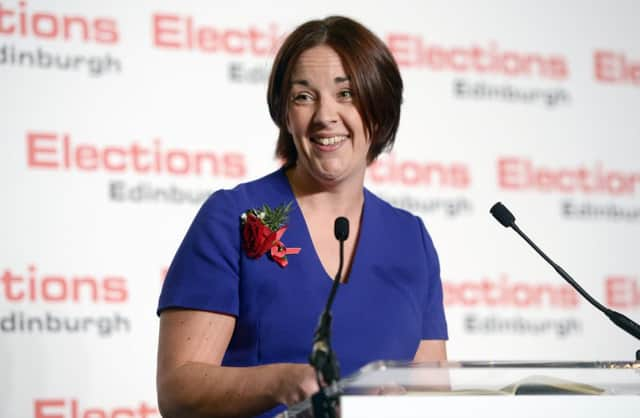John McTernan: Three reasons why voters punished Scottish Labour


The first was when Kezia Dugdale, newly installed as Scottish Labour leader, equivocated on the Union. In an honest attempt to win the support of former Labour voters who voted Yes, she indicated that in the event of a second referendum Labour might not take a firm position against independence. This was to misunderstand the 2015 election result and its implications. The constitutional question was the fundamental cleavage last year – the half of the country supporting independence fell behind one party, the other half were split between three parties. In a first past the post system that gave a supermajority to the SNP. The only ground available for Scottish Labour was as a champion of the Union and they ceded that to the Scottish Conservatives – they became the choice for those who wanted to stop another referendum.
Advertisement
Hide AdAdvertisement
Hide AdThe second was when Scottish Labour believed the SNP spin that they were a left-wing party and tried to outflank the Nationalists on their left. The consequence was a commitment to raise taxes. This, in the context, of a Scotland in which the largest class are the middle class – the monthly paid, white-collar salariat. And in the face of a working class who have never evinced any interest in paying more tax.
The only party which has ever tried offering Scots their own special Scottish tax increase are the SNP in 2003 – they were beaten badly.
The third was when the unions self-indulgently imposed an anti-Trident policy on Kezia Dugdale, a policy which she herself opposed. Again, this was an electorally dangerous place for Labour to go. The majority of Scots oppose unilateralism. And Labour has always been punished by voters when it is seen as weak on defence. The wrong-headedness of the policy can be seen by the fact that one of Scottish Labour’s three winners in a constituency was the redoubtable Jackie Baillie – one of the strongest supporters of Trident in Scotland.
Wrong on the Union, soft on defence and high on tax – in itself this would have been a lethal combination. But there was one more thing – the central proposition. The SNP were always on track to win power, the only question was who could hold them to account. While Kezia Dugdale – by far Holyrood’s best parliamentary performer – claimed that she was fighting to win the election, the voters couldn’t believe it. When Scottish Tory leader Ruth Davidson made the more modest pitch that she would keep the SNP honest by holding them to account, she got a more responsive hearing. And the Tories were the winners when voters deprived the SNP of a majority.
• John McTernan is a a political strategist and was Chief of Staff to Jim Murphy